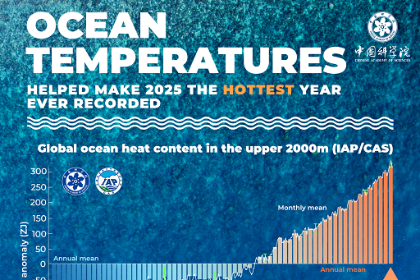Facilitating investment in BRI nations


The global economy is facing both expanding opportunities and rising challenges, including the increasing gap in financing needed for development worldwide. The United Nations Development Programme holds the 2030 Agenda for Sustainable Development and its Sustainable Development Goals at the core of its mandate and welcomes all efforts that have the potential to accelerate their achievements on a global scale.
Given its massive financing flows and investments in infrastructure, institutional capacities and people, when properly aligned the Belt and Road Initiative has the potential to significantly contribute to unlocking important resources, and to enhancing sustainable human development in partner countries. Aligning the Belt and Road Initiative with the SDGs more closely can unlock large-scale financing flows for infrastructure investment and sustainable development in Belt and Road partner countries and enhance the provision of global public goods.
The fundamental question comes down to how we can leverage its potential to support the realization of the 2030 Agenda. The private sector is at the forefront of implementation of Belt and Road projects; therefore, the role of the private sector in the facilitation of Belt and Road investments that are economically, environmentally and socially sustainable remains key.
A recent survey conducted by the UNDP, with more than 700 Chinese companies investing in Belt and Road partner countries, finds that the key challenges companies face are in the areas of financing, laws and regulations, labor relations, and community engagement. For instance, in developing markets where their regulatory frameworks are not yet mature, investors and enterprises face the challenge of non-clarity and a lack of effective enforcement of policies and laws.
As the survey underlines, there's an increasing need for improving the overall business climate and business practices so that sustainable investments can thrive, enhancing both institutional and human capacity, as well as strengthening regulatory frameworks in the partner countries where they don't exist.
With Chinese enterprises, we aspire to promote sustainable investment that can incorporate environmental, social and governance (ESG) factors into the business decision-making process, so as to better manage risk and generate sustainable, long-term returns. This approach facilitates the positive engagement of local communities in partner countries which can better voice their needs, ensure the proper use of natural resources with respect to the environment and advocate clear and fair regulations. All these elements enhance responsible and sustainable investments, while also furthering SDG achievement.
But how can we translate the rhetoric into action and practically promote sustainable investments? In response, the UNDP recently launched the pilot Sustainable Investment Promotion facilities program in Ethiopia, supported by the UN Peace and Development Trust Fund. The program partners the Ethiopian Investment Commission, China's Ministry of Foreign Affairs, the Chinese embassy in Ethiopia, Ethiopia-China Chamber of Commerce, and enterprises.
Through facilitating a platform for stakeholder collaboration, policy engagement and implementing key pilot projects, the program focuses on strengthening partner countries' capacities to address bottlenecks and regulatory gaps by establishing a network to promote sustainable investment, and enhance the economic, social and environmental dividends of Belt and Road investments both in selected pilot countries and beyond. It also offers awareness-raising and capacity-building programs for the investors and enterprises, in order to familiarize them with sustainable investment standards and local priorities.
Leveraging the UNDP's global network, in this case particularly in Ethiopia and China, the SIP program aligns with local development priorities, and aims to maximize Ethiopia's potential to achieve the SDGs by assisting the country in achieving its vision of building an industrial sector with highly competitive manufacturing capability in Africa. The industrial sectors will be diversified, globally competitive, environmentally friendly, and capable of significantly improving the living standards of the Ethiopian people by 2025.
A SIP Investment Forum was held in Addis Ababa last month bringing together more than 100 representatives from China, Ethiopia and other countries, as well as international financial institutions, enterprises and development agencies. This will kick off the platform for knowledge sharing and capacity building that will facilitate the incorporation of ESG factors into policy formulation and decision-making in order to leverage inclusive and sustainable investments.
This is the first step of the two-year SIP program in Ethiopia. Moving forward, to improve the overall business environment, we think it is critical to strengthen the capacity of policymakers, and shape regulatory and institutional frameworks to make them agile in absorbing, sustaining and upgrading foreign investments. In the longer term, the intention is to replicate the successful experience of Ethiopia in other countries with the aim of creating a network of SIP facilities that can support each other through the exchange of knowledge, good practices and lessons learned.
As a trusted development partner with an extensive global network and expertise, the UNDP hopes to help shape the Belt and Road Initiative as an inclusive platform for economic growth and regional cooperation where sustainable investments can thrive. This will serve our ultimate goal of effectively mobilizing and utilizing resources for the successful implementation and acceleration of the UN 2030 Agenda and the SDGs.
The author is UNDP resident representative in China. The views don't necessarily represent those of China Daily.

































